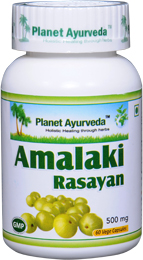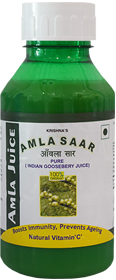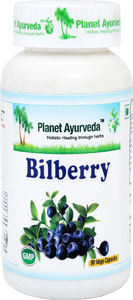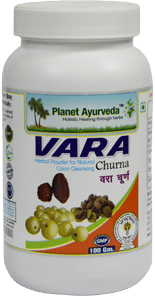Ayurvedic Treatment for Cataract
Introduction
Eyes are the essential organs of our body. It acts as natural camera of our body. Without eyes no one can see the world. So it is necessary to take care of your eyes otherwise you have to face many problems related to eyes like cataract, vision problems etc. cataract is most common problem of eyes in which clouding of lens is there that results in loss of vision. It can be managed very well with ayurvedic medicines. There are number of herbs in Ayurveda which are useful in management of cataract such as Indian Gooseberry (Emblica officinalis), Bilberry (Vaccinium myrtillus), Haritaki (Terminalia chebula) etc.
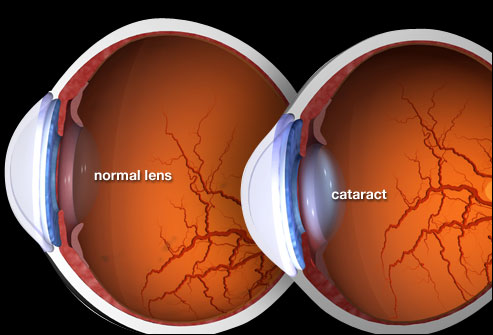
What is Cataract?
Cataract is an eye problem in which protein is deposited over eye lens that leads to cloudiness of lens which results in loss of vision. It begins with interference in daily activities. It refers to change in the appearance of eye lens, as it becomes opaque and whitish in cataract. Normally it occurs with advancing age and about 70% of old people above 75 years of age suffer from cataract. Usually it occurs in both eyes but mostly the one eye is affected earlier than other.
Ayurvedic Outlook of Cataract
As per Ayurveda cataract is known as Linga nasha. According to Ayurveda, it is due to aggravated vata dosha. Due to this condition vata makes things dry. In this situation the eye lens becomes dry and loses its moisture which results in opacity of eye lens that leads to cataract.
Types of Cataract
Cataract is of different types according to site of cataract which are explained below:
- Nuclear Cataract: In this, cataract affects the center of lens and usually associated with aging.
- Cortical Cataract: Affects the edges of lens. It starts as whitish, wedge shaped opacities on the outer edge of lens.
- Posterior Sub capsular Cataracts: Back of lens eyes which starts as a small, opaque area from near of back of lens is affected.
- Congenital Cataracts: This condition is from childhood.
What are the Cataract Causes?
- Age Related: It is common cause of cataract. As with increasing age, proteins start getting accumulated in eye region that makes cloud on lens area.
- Trauma
- UV radiation
- Medications
- Diseased condition like diabetes.
What are the Cataract Symptoms?
- Blurred vision
- Difficulty with vision at night
- Double vision
- Problem to differentiate colors
- Sensitivity to light
- Seeing “halos” around lights
- Fading or yellowing of colors
- Frequent changes in eyeglass or contact lens prescription
How Ayurveda Helps in Cataract?
According to Ayurveda, herbal remedies show positive results on human body. It take some time to show their effect but it has long lasting effects and there are no side effects of these products. They do not make person dependent. There are many herbs used to prevent cataract such as Indian Gooseberry (Emblica officinalis), Bilberry (Vaccinium myrtillus), Haritaki (Terminalia chebula) etc. These herbs usually give strength to eyes muscle and improve eyesight.
Herbal Remedies for Cataract by Planet Ayurveda
Planet Ayurveda provides effective herbal remedies such as Amalaki Rasayana, Amla Saar, Bilberry Capsules & Vara Churna for cataract treatment in Ayurveda. These herbal remedies are prepared from using best quality herbs and strictly follow the principles of Ayurveda. All these herbal remedies of Planet Ayurveda are 100 percent pure, natural and vegetarian. These herbal supplements are free from chemicals, additives and preservatives. These are safe to use as these are free from side effects.
1. AMALAKI RASAYAN
These are pure natural herbal capsules which are obtained from extract of Indian Gooseberry (Emblica officinalis). It is the richest source of vitamin C. It is natural and safe and best anti-aging substance.
USES:
- It has anti-oxidant properties which helps to remove free radicals from body.
- These herbal capsule improve eyesight.
- It helps to reducing inflammation of eyes.
DOSE: 2 Capsules twice a day with plain water after meals.
2. AMLA SAAR
It is Indian Gooseberry Juice which is made from Emblica officinalis (Amla). It is the best herbal formulation as per Ayurvedic text, Charak Samhita.
USES:
- It helps to maintain overall health.
- Enhances eyesight.
- This syrup has antioxidant properties which helps to remove toxins from body.
DOSE: Mix equal amount of Amla saar and water and consume it twice in a day after meals.
3. BILBERRY CAPSULES
These are pure natural capsules by planet Ayurveda which are obtained from pure herb named as Bilberry (Vaccinium myrtillus). Bilberry is also known as Whortleberry and blueberry.
USES:
- It has wonderful effect on eyes.
- Full of anti-oxidant properties.
- Improves blood circulation in all parts of body.
DOSE: 2 capsules with milk or water with plain water after meals.
Note:- Our Product Bilberry Capsules is not yet online. To buy Bilberry Capsules offline, Kindly mail us at:- herbalremedies123@yahoo.com
4. VARA CHURNA
It is an herbal powder also known as Triphala powder. This herbal powder is made up of three natural herbs Haritaki (Terminalia chebula), Bhibhitaki (Terminalia bellirica) and Amalaki (Emblica officinalis). These three herbs together known as Myrobalans. It is effective against various diseased conditions.
- Haritaki (Terminalia chebula): It is commonly used herb in India which is useful in relieving constipation. It helps to improve digestive problems. Its regular use is helpful in reducing cloudiness of eye lens.
- Bhibhitaki (Terminalia bellirica): Its paste is useful in relieving conjunctivitis.
- Amalaki (Emblica officinalis): It is commonly known as Indian Gooseberry. It is richest source of vitamin C. It is helpful in various ailments. Its regular use maintains the transparency of eye lens.
DOSE: 1 teaspoonful mix with warm water and consume it twice in a day after meals.
Diet Guidelines to prevent cataracts
With the help of healthy and balanced diet one can prevent themselves from cataract. There are some diet guidelines to prevent cataract which are given below:
- Bitter and sour foods should be avoided like pickle, sauce, strong tea and coffee.
- Take vitamin C, A and E rich diet.
- Cow’s milk and milk products are beneficial.
- Take Fruits like pomegranate, orange, apples, bananas
- Vegetables like spinach, ladyfinger and fenugreek should be included in diet.
- Avoid direct contact with toxic chemicals, X-Rays, IR rays.
- Regular eye checkup is advised.


